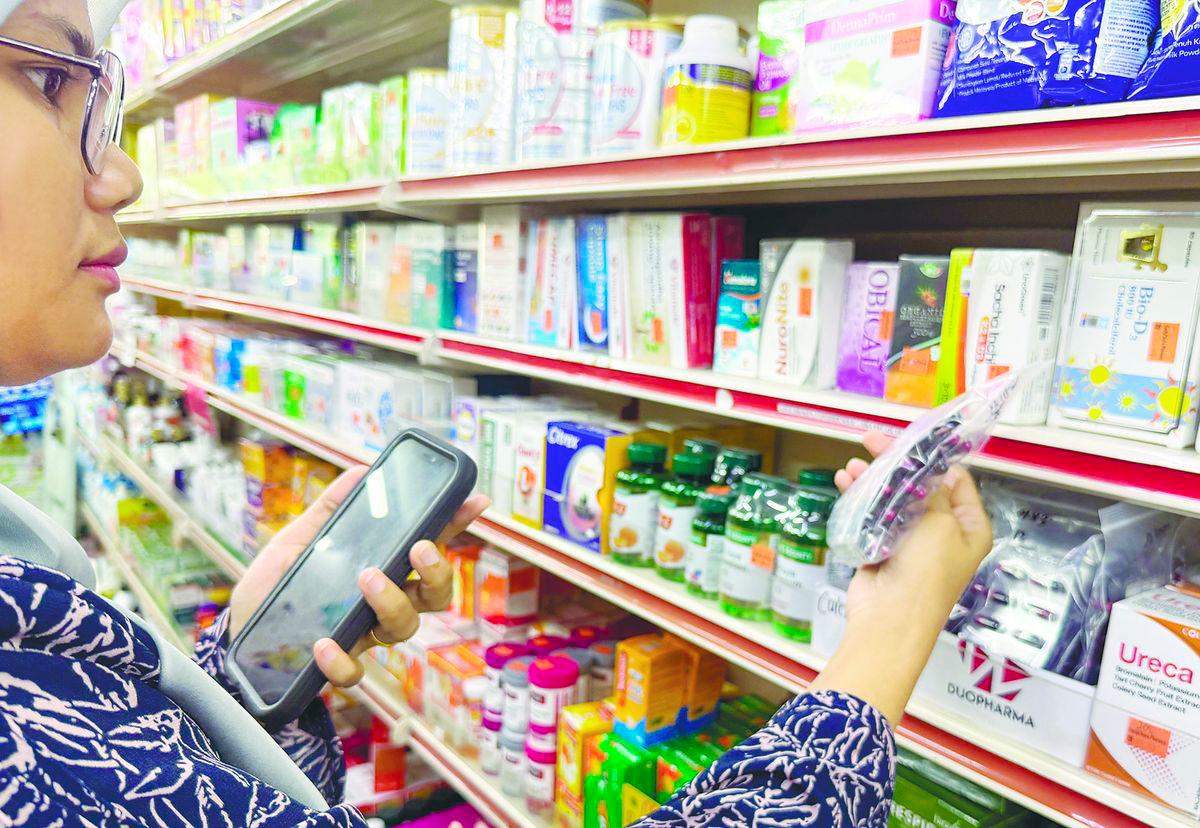PETALING JAYA: A mobile application which allows users to compare the prices of medications at private clinics and hospitals could be the ideal solution to help consumers make informed healthcare decisions, says economist Prof Emeritus Barjoyai Bardai.
He said such a platform would ensure consumers are aware of the prices of medicines in the market before making a purchase.
“At the moment, medicine prices at over-the-counter pharmacies vary significantly. In the Klang Valley alone, there are many pharmacies, and since prices were previously unregulated, some were selling medicines at double the price compared with competitors.
“This should not continue, as consumers who fail to diligently compare prices may incur unnecessary financial losses,” he told theSun.
Barjoyai said the government should consider developing the app in line with the enforcement of the mandatory price display under the Price Control and Anti-Profiteering Act 2011 (Act 723), which came into effect on May 1.
“Just like pharmacies, private healthcare facilities also charge varying prices for medication. Unless someone visits several clinics or hospitals, it’s hard to know which one offers more affordable services.
“But if there were an app that allowed users to compare treatment and medication costs at nearby facilities, it would empower consumers to make smarter choices. It might also encourage clinics to standardise pricing to remain competitive.”
During a TikTok Live session by a senior Health Ministry officer who discussed the mandatory display of medicine prices in private clinics and pharmacies last Wednesday, it was revealed that a mobile app is in development to help users compare medicine prices across private clinics and pharmacies.
Barjoyai, however, was puzzled over the opposition from some healthcare groups to the implementation in the private sector.
“Displaying prices has long been mandatory across retail sectors, from hypermarkets to market traders. Pharmacies are also required to comply. So it’s unclear why certain groups in the private healthcare sector are objecting to this move,” he said.
The mandate to display drug prices at general practice clinics has sparked concerns that it could trigger medical inflation.
Federation of Private Medical Practitioners’ Associations Malaysia (FPMPAM) president Dr Shanmuganathan TV Ganeson said the enforcement would impact livelihoods and restrict patient access to affordable care.
He said GPs nationwide have long practised a “bundled fee” model, in which charges for administrative tasks, consultations, nursing, medication and minor procedures are combined into one affordable sum for the entire visit.
With the new move, Shanmuganathan said GPs may no longer be able to pool the services under a single bill, and a typical clinic visit could now cost patients over RM100.
“The bundled model mirrors the Diagnostic Related Groups (DRG) pricing system, which helps contain costs and offers predictability for patients.
“For instance, treating a common condition like dengue fever might typically include: RM35 for consultation, RM20 for medicine and RM40 for blood tests, totalling RM95, with no separate charges for registration, nursing, disposables, utilities or compliance documentation.
“However, under the new itemised or ‘unbundled’ billing requirement, patients could now see charges such as RM5 for registration, RM10 for medicine, RM5 for disposables, RM5 for waste disposal and RM5 each for nursing and infectious disease notifications. This would raise the total bill to around RM110,” he explained in a WhatsApp reply to theSun.
Shanmuganathan warned that the shift would not only drive up costs but also increase the administrative load for GPs, who have traditionally absorbed or waived minor fees to keep care affordable.
On Sunday, the Health Ministry clarified that there is no policy change or new directive requiring private medical clinics to provide itemised billing by default.
It said itemised bills are only mandatory upon a patient’s request and must be issued at no extra charge to help patients understand the breakdown of service, treatment and medication costs.
“The right of patients to request an itemised bill is stipulated under the Private Healthcare Facilities and Services (Private Hospitals and Other Private Healthcare Facilities) Regulations 2006,” the ministry said in a statement.
It emphasised that continued collaboration among stakeholders will enhance healthcare quality and safeguard patient rights, in line with Madani values, particularly “well-being”, which promotes equal rights for both patients and private providers.









